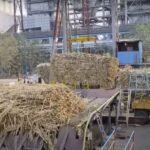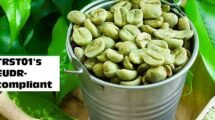What exactly is genetically modified rice? Is GM rice grown in India? Was it really exported from India?
genetically modified (GM) foods are derived from plants whose genes have been artificially modified, typically by inserting genetic material from another organism, to give it a new trait, such as increased yield, herbicide tolerance, disease or drought resistance, or enhanced nutritional value.
Golden rice is probably the most well-known type of GM rice, which involves the insertion of genes from a plant – both Daffodils and Maize have been used – and a Soil Bacterium to create a grain enriched with Vitamin A.
Also Read: Agri-biotech industry labelled Govt as ‘regressive’ on field trials of Bt brinjal
Only one GM crop, Bt cotton, has been approved for commercial cultivation in India. In the country, no GM food crop has ever been authorized for commercial cultivation. However, limited field trials for at least 20 GM crops have been permitted.
This includes GM rice varieties with improved pest and disease resistance, as well as hybrid seed production and nutritional improvements like golden rice.
Public universities and research institutions such as the Indian Agricultural Research Institute (IARI) and Tamil Nadu Agricultural University (TNAU), as well as private companies such as Bayer Bioscience and Mahyco, have conducted trials.
Was genetically modified rice exported from India?
According to the Commerce Ministry, ‘there is no question of export of GM rice from India because commercial cultivation of GM rice is prohibited in the country.’
The European Union (EU) stated that it was unsure of the exact source of the contaminant, that contamination could have occurred during the processing of the rice flour in Europe, and that ‘this could be a conspiracy to harm India’s image as a reliable supplier of quality rice to the world.’
Despite the indignation, its exports authority Agricultural and Processed Food Products Export (APEDA) started an investigation, which identified a Maharashtra-based trader as the source of the rice consignment, which had been given a non-Genetically modified organisms (GMOs) certification by a testing agency just before shipment. It also demanded that the EU provide information on specific genetic markers found in the shipment.
Farm and environmental activists argue that plants or seeds from the GM rice field trials contaminated non-GM crops, stating that illegal GM cotton and brinjal varieties are already freely circulating among sections of Indian farmers.
Also Read: Livestock feed industry petitioned Central to allow GM crops to alleviate feed scarcity
This is not the first time such accusations have been leveled. The European Commission notified the Commerce Ministry in May 2012 of an allegation of GM contamination of basmati rice from both Indian and Pakistani suppliers.
ReadMore: Center investigates allegations that unapproved GM rice was exported


















Add Comment